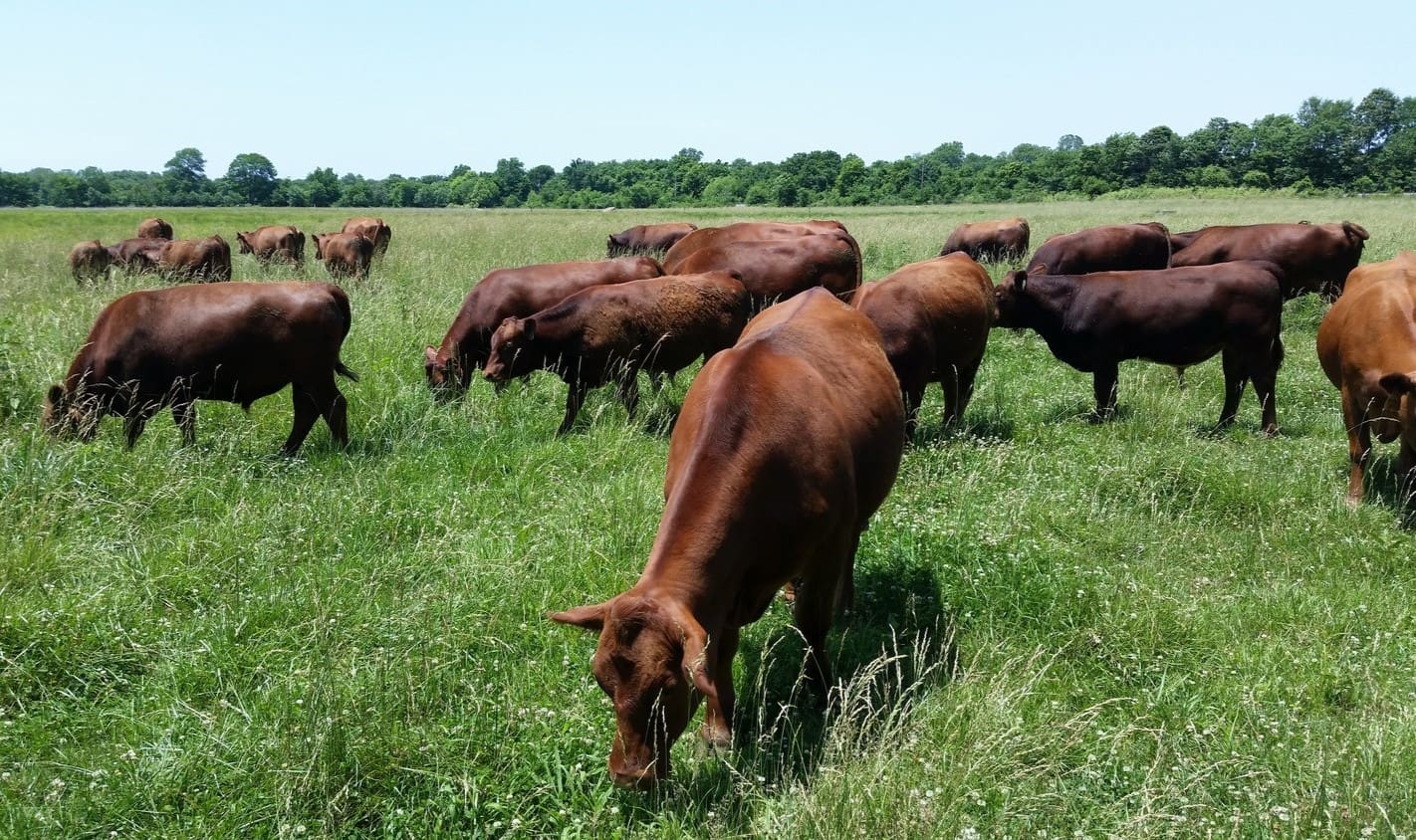Many things can be used to tell if meat has gone bad, one of the best being “is it dark green?” But smell has always been the best way to tell if something is safe to eat. If something smells bad, it’s usually a sign that you shouldn’t eat it. This is called “The Smell Test.”
But, sometimes that test doesnt quite work even though it feels like it should. Science sometimes gets in the way and says that something is still safe to eat even though it smells bad. Maybe you’ve bought vacuum-sealed meat at the store and when you opened it at home, it smelled funny and a little sour. But here’s the thing: your grocery store wasn’t selling old meat as new, and if you threw it away, you were probably throwing away meat that was still good to eat. Theres a good reason it smells like that: lactic acid.
Grass-fed beef offers an array of health and sustainability benefits. But some people find the smell of grass-fed meat unappealing or even off-putting. Sour, gamey and barnyard-like aromas can be detected. If you’re used to conventional grain-fed beef, this new scent may come as a surprise.
So what causes grass-fed beef to sometimes have a sour smell? And is it supposed to smell this way or is something wrong with the meat? Let’s explore the science behind grass-fed aromas to understand what’s really going on,
Why Grass-Fed Beef Smells Different
Several factors contribute to grass-fed beef having a stronger, more sour aroma versus conventional beef
-
Grass Diet – The compounds in fresh pasture that cattle eat impart a distinct grassy flavor that comes through in the meat. Grains like corn result in a milder taste.
-
Fat Profile – Grass-fed beef contains more omega-3s and conjugated linoleic acid (CLA) which can cause a stronger scent.
-
Lack of Marbling – With less intramuscular fat, there are fewer mild flavors to balance out stronger smells.
-
Forage Quality – New spring growth has more chlorophyll and fragrant plant compounds that influence odor.
-
Cattle Breed – Heritage breeds adapted to forage naturally have stronger-tasting meat.
-
Butchering – Improper handling between farm and table can allow off smells to develop.
Understanding what causes the sourness enables you to select, prepare and cook grass-fed beef properly to enjoy the benefits while minimizing unpleasant aromas.
Tips for Dealing with Sour Smelling Beef
If you find the scent of your grass-fed beef unappealing, here are some tips to improve the aroma:
-
Choose fattier cuts like ribeye over leaner cuts.
-
Opt for grain-finished instead of 100% grass-fed if smell is too strong.
-
Marinate overnight in wine, vinegar or citrus juice to neutralize odors.
-
Pre-slice and soak steaks in milk for 20 minutes to mellow flavor.
-
Cover with lots of aromatics like garlic, onions and herbs when cooking.
-
Opt for ground instead of whole cuts.
-
Mix grass-fed with milder grain-fed for balanced aroma.
-
Cook to medium or medium-well instead of rare to lessen intensity.
With a few preparation adjustments, you can still obtain the benefits of grass-fed beef while reducing undesirable scents.
Is Sour Smell Normal for Grass-Fed?
While you may find the smell of 100% grass-fed beef unpleasant, it’s important to note that it’s not necessarily “bad” meat. The grass diet cattle eat contains more omega-3s than corn fed to conventional beef cattle. This impacts the final flavor and aroma.
Some describe grass-fed beef as having a “grassy” or earthy smell, while others detect “gamey” or “barnyard” notes. Your personal taste and smell sensitivity determine whether you consider it unpleasant or just different. The scent is naturally stronger due to the grass diet.
That said, if the smell is extremely rancid, putrid or like ammonia, then the beef has likely spoiled and should be discarded. But a mildly sour, wild or untamed aroma is generally normal for pasture-raised beef. The scent does not indicate spoilage, just the grass diet.
Should You Avoid Sour Smelling Grass-Fed?
Some people can’t get past the unique aroma of grass-fed beef while others come to enjoy it over time as their palates adapt. You may find mixing grass-fed with grain-finished provides the right balance of smell and taste.
It’s understandable to be put off if you expect all beef to smell mild, only to get a whiff of something “off.” But now that you know the science, you can better set expectations when buying grass-fed meat.
While the odor may seem sour, healthy cattle living in pasture and eating natural diets is ultimately better ethically and nutritionally. With the right cooking techniques, you can still get all the benefits of grass-fed beef while minimizing undesirable smells. Don’t let the sour scent stop you from trying pasture-raised beef if you’re curious about the effects of more natural cattle husbandry.
The Takeaway
Grass-fed beef contains a higher concentration of omega-3 fatty acids that can contribute to a stronger, sometimes unpleasant aroma versus corn-fed beef. The grass diet and breed also play a role. While you may find the smell sour, it doesn’t mean the meat has spoiled. With proper handling and cooking, these natural scents can be reduced. Understanding the science helps overcome any aversion to the new smells you’ll encounter when cooking nutritious grass-fed beef.
Frequently Asked Questions
Is it normal for grass-fed beef to smell sour or gamey?
Yes, it’s normal for grass-fed beef to have a slight sour, gamey or grassy aroma. This is due to the compounds in the grass diet as opposed to grain. It does not mean the meat has gone bad.
Does the smell mean my grass-fed beef went bad?
Not necessarily. A very rancid, putrid or ammonia-like smell may indicate spoilage. But a mildly sour, wild or untamed scent is normal for grass-fed beef and not a sign of it going bad.
What cuts of grass-fed beef smell the least?
Fattier cuts like ribeye tend to have a milder aroma than lean cuts like sirloin or tenderloin. Ground or minced grass-fed beef also smells less than steaks.
Will the sour smell go away when I cook it?
Not completely, but proper cooking and the addition of marinades, spices and aromatics like garlic can help reduce or mask the sourness. Cooking beyond rare also lessens the intensity.
Should I avoid buying grass-fed beef due to the smell?
It’s a personal preference, but the ethical and nutritional benefits still make grass-fed worth considering. Mixing grass-fed with milder grain-fed beef provides a good aroma/flavor balance. With the right expectations and cooking techniques, you can enjoy grass-fed beef despite the stronger natural scents.

That sour smell is actually a sign the meat is healthy

Even though it sounds weird, if your meat has a bit of a sour or sulfuric smell, that’s a very good sign. When the protein in question is tightly packed with its own juices, lactic acid builds up inside the package. This gives the meat a funny smell from the trapped air. Not because the meat has gone bad, but because the seal was tight and clean.
Also, if there are a lot of juices in the package—so many that the absorbent pad can’t handle them—that could mean the juices weren’t stored properly. For the smell, however, the good news is that it shouldn’t last long; it should be gone after about 30 minutes. If it isnt . well, thats when you might actually have a problem on your hands.
